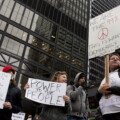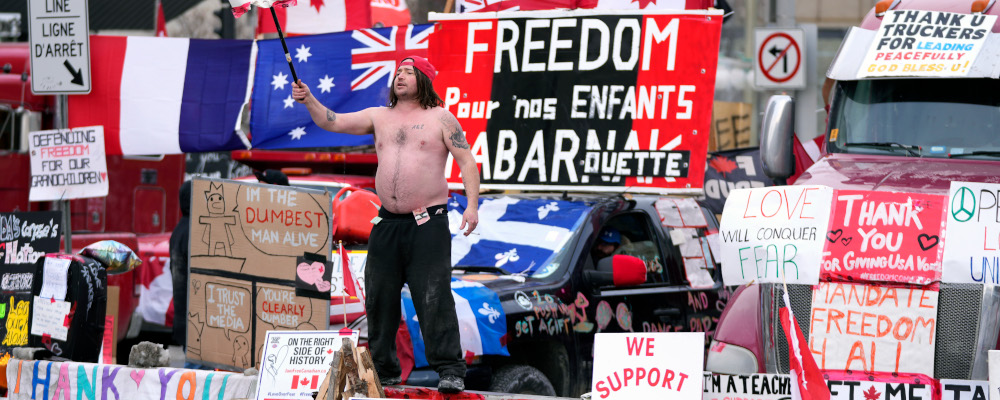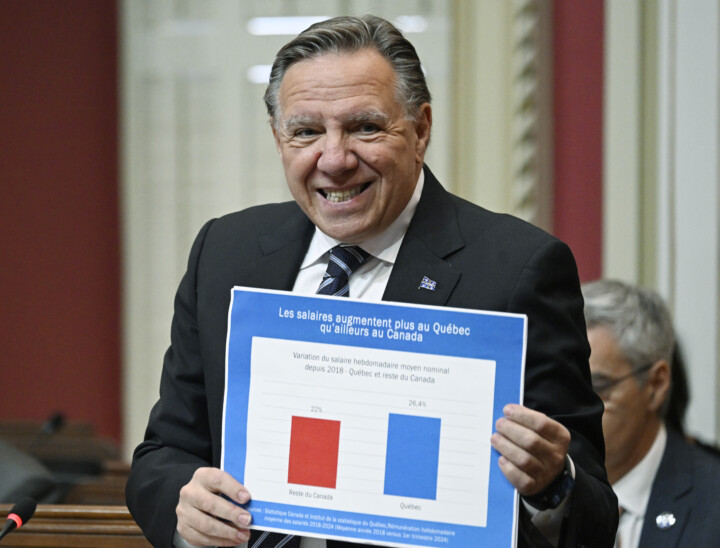Between the Freedom Convoy in Ottawa last February, recent demonstrations against COVID-zero policies in China, and many other protests around the world of varying inspirations, including the uprisings in Iran, we have been offered several opportunities during the pandemic to reflect upon the role and value of protest.
The occurrence of protest is usually a sign of a vibrant democracy in which citizens are invested in how they are being governed and how their society ought to change. Even where protests are a response to a perceived departure from democracy or occur in non-democracies, this activity is still a form of democratic participation because it aims to preserve or promote democratic governance.
Citizens coming together to publicly manifest their agreement or disagreement with this or that cause, issue, law, court ruling or other matter of public concern is a normal feature of democratic life—so much so that it would be unsettling from the standpoint of a society’s democratic credentials if peaceful, non-violent protest ever became an endangered species of democratic participation or even extinct.
It is one thing to say that protests are commonplace and considered normal in a democracy, but how does protest enhance democracy? What, in other words, is the added value of protests to democracy?
History and hindsight are helpful here. It would not take long to create a list of protests that were instrumental in bringing about transformative change for a society or dramatically raised awareness within that society—and others watching from afar—of injustice, inequity, and violations of human dignity. The civil rights movement in the United States, Tiananmen Square, and Mahatma Gandhi’s salt march come quickly to mind as examples.
It is difficult to precisely measure the effects of protests like these on the societies in which they occurred (as well as on other societies that took notice), but there is no doubt that these and many other protests have accelerated the pace of change in hearts, minds, and laws alike.
So the value of protest to the pursuit of a society that is more just, equitable, and protective of human dignity might be easier to perceive through the rear-view mirror, but we can apply these lessons of the past to protests during our lifetime. The protests we ourselves witness could be part of a longer arc of positive change that is not fully perceptible to us when the protest is occurring. They may also turn out to not be part of that kind of change, but our inability in most cases to definitively know either way at the time suggests that we should err on the side of permitting protest within reasonable limits.
Still, some of us might say that instead of protesting we should opt for less disruptive and disconcerting forms of democratic participation: voting, running for office, writing to your elected representatives, publishing an opinion article in the newspaper, starting a political advocacy group, and so on.
One response to this proposal would be that protest, owing precisely to its uniquely disruptive and disconcerting features, may in certain cases be far more effective than other methods of democratic participation. It may even be true that, in certain cases, protest is the only method that stands any chance of sparking the change that is desired. It is hard to imagine the U.S. civil rights movement succeeding simply through writing letters to members of Congress.
Protest, in other words, might be the only meaningful way for certain voices and the messages they carry to be heard in the halls of power. Without protest, the desired change might take much longer to come about—in the order of decades and beyond—or it might never come about. Timing is another consideration: injustice does not schedule itself to occur only during election campaigns.

There is also, with respect to the democratic merits of protest, what might be called the pressure-cooker rationale: allowing citizens to come together to peacefully express discontent over how their society or other societies are governed allows these citizens—and even those citizens who agree with the protest but can only watch on television or social media—to let off steam and be heard. Unduly suppressing this outlet might eventually cause the pressure cooker to explode. As President John F. Kennedy put it, “Those who make peaceful revolution impossible will make violent revolution inevitable.”
Much more could be said about the added value of protest to democracy, not to mention the value of protest to the human condition and spirit. But perhaps the greatest obstacle to appreciating the democratic value of protest in general is our own opinion on the aim or cause of specific protests.
When we disagree with the viewpoint animating the protest of the day, our opinion of protest as a form of democratic participation may diminish. Conversely, when we agree with the complaints of the protesters, our affinity for protest itself may increase. This dynamic comes to the surface when we opine on how long a given protest should be allowed to last or the degree to which restrictions should be imposed on the time, manner, and place of the protest. I suspect we often afford more or less latitude on these points depending on how sympathetic we are to the views animating the protest at issue.
It takes a robust form of even-handedness and tolerance to express support for protest when we profoundly disagree with the reason for a particular protest or the views that the members of the protest hold. And yet, in Canada, this ideal is our aim as a free and democratic society committed in constitutional text and civic principle to maintaining a public square that is open to all its citizens and, apart from reasonable limits for the common good, a place for the free expression of their core convictions.
Protests often cause significant disruption to our daily lives. Protests may also be deeply offensive depending on how you relate to the views of the protesters. There is no way around it: granting time and space for this sort of turbulence—even constitutional protection for it—is an open invitation to social friction. Despite the downsides, protest is certainly worth protecting on account of its service to democracy. Winston Churchill was truly onto something when he said that “democracy is the worst form of government except for all those other forms that have been tried from time to time.”
Recommended for You

Kirk LaPointe: The Canadian Football League is worth saving

Samuel Ragot and Daniel Béland: Poverty among persons with disabilities is a policy choice

Patrick Luciani: Is economic inequality the greatest of all plagues?

The Weekly Wrap: Nostalgia is not a good enough reason to keep the CBC around




